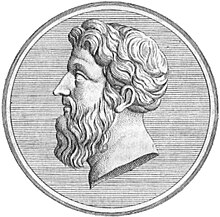
Back De mortuis nil nisi bene German De mortuis nil nisi bonum Esperanto De mortuis nil nisi bene Finnish De mortuis nihil nisi bonum French אחרי מות, קדושים אמור HE De mortuis nihil nisi bonum Italian De mortuis nil nisi bonum Turkish

The Latin phrase De mortuis nil nisi bonum dicendum est, "Of the dead nothing but good is to be said." — abbreviated Nil nisi bonum — is a mortuary aphorism indicating that it is socially inappropriate for the living to speak ill of the dead who cannot defend or justify themselves.
The full Latin sentence usually is abbreviated into the phrase (De) Mortuis nihil nisi bonum, "Of the dead, [say] nothing but good."; whereas free translations from the Latin function as the English aphorisms: "Speak no ill of the dead," "Of the dead, speak no evil," and "Do not speak ill of the dead."
Attributed to Chilon of Sparta, who was one of the Seven Sages of Greece, the aphoristic recommendation about not speaking ill of the dead was first recorded in Classical Greek, as: τὸν τεθνηκóτα μὴ κακολογεῖν ("Of the dead do not speak ill."), in chapter 70 of Book 1 of the Lives and Opinions of Eminent Philosophers, by Diogenes Laërtius, in the 4th century AD. The Latin version of the Greek mortuary phrase dates from the translation of the book by Diogenes Laërtius, by the humanist monk Ambrogio Traversari in 1443.[1]
- ^ Traversari, Ambrogio (1432). Benedictus Brognolus (ed.). Laertii Diogenis vitae et sententiae eorvm qvi in philosophia probati fvervnt (in Latin). Venice: Impressum Venetiis per Nicolaum Ienson gallicum. Retrieved 12 May 2013.[permanent dead link]